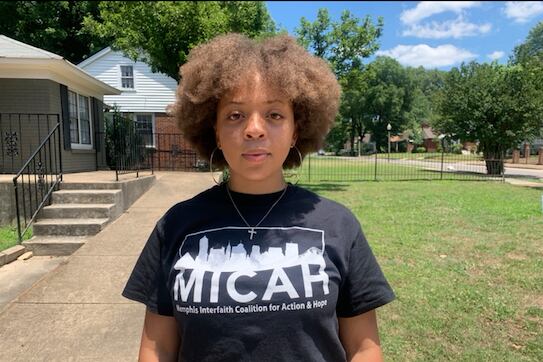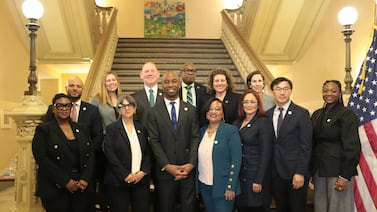The pandemic that disrupted senior year for Tennessee high school students is also affecting their college-going plans, with many of the state’s postsecondary schools receiving 25% fewer applications than this time last year.
Now, with 10 weeks left until fall semester begins, the state’s higher education community is encouraging the Class of 2020 and returning college students to turn in their paperwork for school.
Dozens of colleges and universities joined together on Tuesday to announce a monthlong social media campaign called #ItsGoTimeTN.
They’re seeking to reverse recent trends in Tennessee that mirror what’s happening nationwide as higher education institutions prepare for a semester of uncertainty under COVID-19. Administrators are developing social distancing plans for classrooms and dorms and stockpiling personal protective equipment to resume campus life as normally as possible.
“Our goal is to convey to students the importance of finalizing their college plans and ensure that fall 2020 continues the momentum we have seen in Tennessee in recent years,” said Mike Krause, executive director of the Tennessee Higher Education Commission.
Last year, about 62% of Tennessee’s graduating seniors went to college. Before the pandemic surfaced, the Class of 2020 had Tennessee leading the nation again in completing the Free Application for Federal Student Aide, which is considered a top indicator that students are pursuing educational opportunities beyond a high school diploma.
But disruptions and uncertainty created by the coronavirus have significantly slowed the flow of applications statewide, whether to universities, colleges, or community and technical colleges.
“Some of our schools have been down 20 to 25% since early spring,” said Russ Deaton, executive vice chancellor for policy and strategy at the Tennessee Board of Regents, which oversees 40 community and technical colleges and is the state’s largest system of higher education.
“The question is: Are students just delaying making their plans until later this summer, or have they decided not to attend this fall? We’re hoping that it’s not the latter,” Deaton said.
Faith Miller, who recently graduated from Overton High School in Memphis, is moving ahead with her college plans but understands why some of her classmates are hesitant.
“I’m worried about whether I’ll be able to go to classes in person or what things will look like. We still have no vaccine for coronavirus. We still have cases rising,” said the 17-year-old, who plans to attend Lee University in Cleveland, Tennessee.
The challenge of paying for college is also heightened because of the related recession.
“How do you go from your mom or dad losing their jobs to going to college without any way to pay for tuition?” asked Miller.
Students planning to use a Tennessee Promise scholarship should remember that they are only eligible if enrolled full time in the fall semester immediately following high school graduation.
As for the uncertainties and challenges facing today’s college students, the Board of Regents has sought to acknowledge and assure them through its own TV and social media campaign titled “When You’re Ready, We’re Ready!” It’s also supporting the #ItsGoTimeTN campaign on social media along with the University of Tennessee System, the Tennessee Independent Colleges and Universities Association, the Tennessee Higher Education Commission, and the State Collaborative on Reforming Education, an education advocacy group also known as SCORE.
“We want to remind everyone that with today’s economic uncertainty and high unemployment, it is now more important than ever to earn a postsecondary degree or certificate to prepare for a rewarding career and high-demand job,” said SCORE President and CEO David Mansouri.





